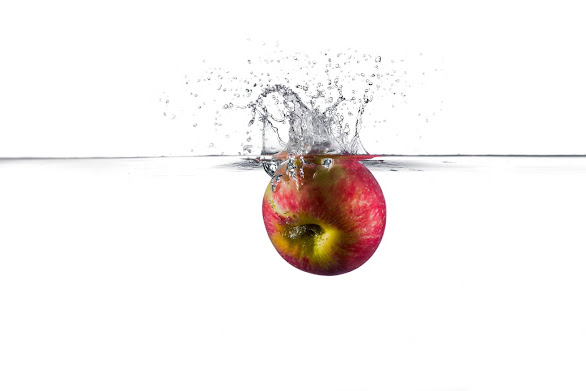“Be sure to take your vitamins and minerals” we have been told ad nauseum since we were little. It’s sound advice, but why? Why exact are vitamins so important, and what benefit do we get from taking them?
Let’s start with enzymes, which regulate chemical reactions in the body (without changing itself), and co-enzymes, which are either vitamins or have derived from vitamins. According to Biology Dictionary, a coenzyme is an organic non-protein compound that binds with an enzyme to catalyze a reaction.
These enzymes are vital for the digestive system, DNA replication, respiration, muscle and nerve reactions. Creative Enzymes states: Enzymes catalyze all kinds of chemical reactions that are involved in growth, blood coagulation, healing, diseases, breathing, digestion, reproduction, and many other biological activities. On biological aspects, enzymes are instrumental substances to many functions in living organisms. So why is this important to know? Simply put, without co-enzymes to act as a catalyst to create a reaction within the enzyme, the enzymes cannot work. No vitamins, no breathing. (That may be a little bit of an exaggeration, but the point remains.)
Now that we have a little backstory on the importance of vitamins, what do you actually need to be taking? There are the basic B-Complex vitamins, which consist of Vitamin B1, B2, B5, B6, B12, Niacin, Folic Acid, Biotin and Vitamin C. Other important vitamins to take are Vitamin C, E, A, D and K.
To further break down what each vitamin is good:
Thiamine: Take B1 for energy as it converts carbohydrates into usable energy. When you have a low supply of B1 you will often feel tired, irritable or have muscle fatigue.
Riboflavin: B2 is also good for converting carbs and proteins into energy. A B2 deficiency goes much further than tiredness however, as the symptoms can include reproductive problems, edema, mouth lesions, hair loss and much more.
Pantothenic Acid: B5 is a terribly important vitamin to take daily, as it is necessary for making blood cells. Although a deficiency is rare it can lead to stomach pain, irritability, insomnia amongst other symptoms.
Pyridoxine HCI: A lack of B6 can lead to anemia and in turn can lead to other blood problems including PMS and heart problems. But when taking B6 on a regular basis it can in turn help all of those same blood problems.
Cyanocobalamin: B12 is another vitamin that plays an important role in red blood cell formation. It also plays a beneficial role in helping prevent the degradation of muscle and bone tissue. B12 can also aid in hair and nail growth. Like many of the other vitamins, a B12 deficiency can lead to depression and irritability, but other signs may be yellowish tinged skin, mouth ulcers and vision problems.
D-Biotin: Biotin is most commonly known for it’s aid in hair and nail growth as it rebuilds tissue and aids in cell growth. When your body is deficient in Biotin, your hair can start thinning and your skin can develop rashes around the eyes, mouth and nose.
Folic Acid: Folic is especially important for women trying to conceive as a lack strong deprivation of folic in the mother can lead to a cleft palate in newborn babies. Without enough folic, it’s not uncommon to feel incredibly tired and have little energy. Folic Acid aids in the production and maintenance of new cells.
Niacinamide: If for nothing else than comfort, it’s important to take Niacin regularly as a deficiency can lead to lesions on the face and body, pain and swelling of orifices, and digestive problems. When taking Niacin often, it can be an anti-inflammatory aid and is fantastic for your skin.
Ascorbic Acid: Honestly, there are few things Vitamin C isn’t good for. It’s a collagen booster, a skin protectant, it’s a fantastic immunity aid, it’s good for your heart and maintaining healthy blood, and it can help to protect your brain. It’s also very important for pregnant women to take Vitamin C, as both her and baby need it! Scurvy; skin, hair and nail problems, joint discomfort, and so much more can all be side effects of a lack of Vitamin C.
Be wary of vitamins that sell you, say 1000% of your daily recommended dosage, however. If they are astronomically high, it’s not because your body is getting that much more of a dosage, it’s because they have had to put so much into the product for your body to be able to absorb any amount.
Take Vitamin C for example. Vitamin C is a water-soluble vitamin, so any amount your body does not absorb will be flushed out in urine. Also, your body can only assimilate about 2000mg of Vitamin C a day. So, if you take 3000mg because you’re feeling sick, although it’s good to take the high dosage to help with a cold, your body will be flushing a good portion of that without every using that above and beyond amount.
Another thing to be conscientious of it taking any vitamins that come in a gummy form. If you look on the label, most gummy “vitamins” are chock full of sugars, pectin and “natural flavors”. Fun tidbit, the FDA’s definition of natural flavors means the flavor has to originate from something that was once living, so therefore its quote-on-quote natural. (You can read more on that here). Healthy…
Long story short, if you want to have energy, look healthy and just feel happy- take your stinkin vitamins!



